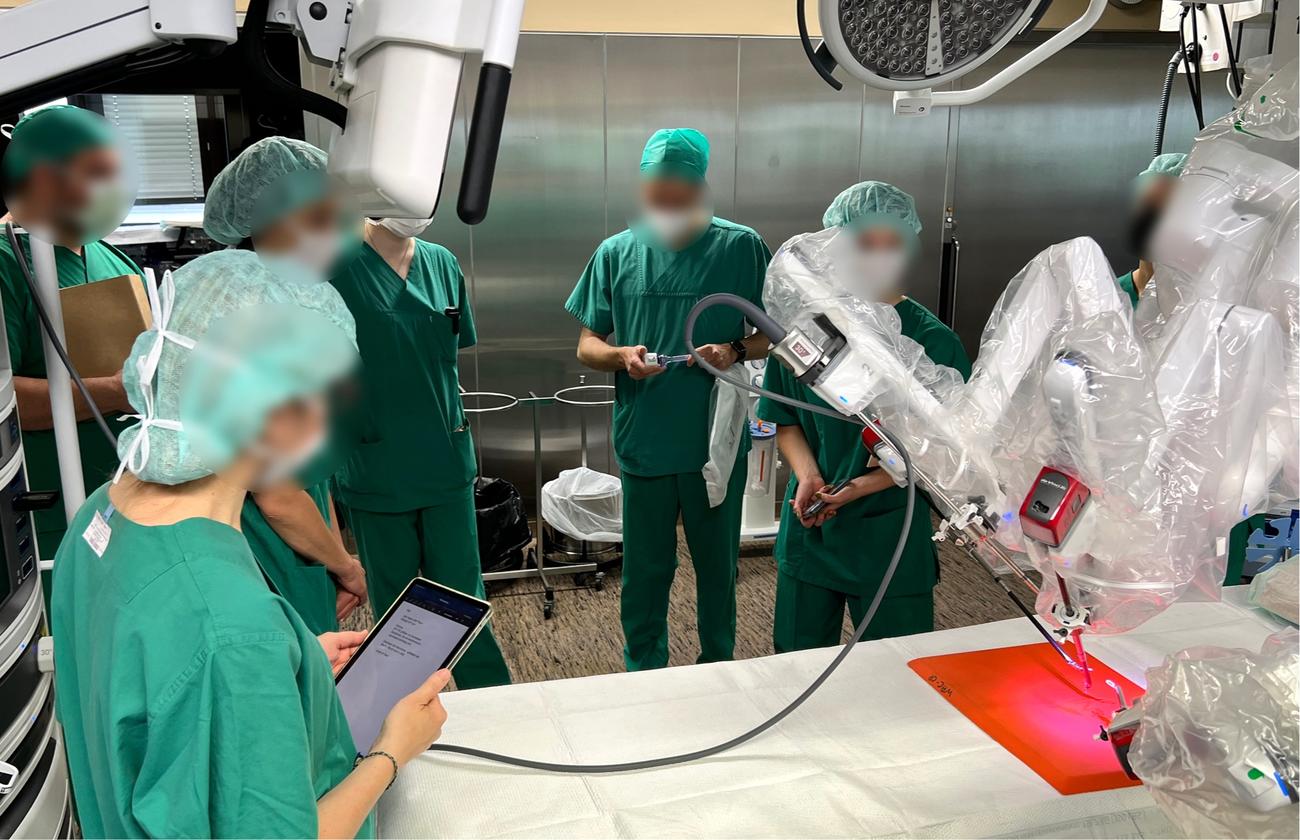Towards Human-Robotic Collaboration: Observing Teamwork of Experienced Surgeons in Robotic-Assisted Surgery
Presenting Research on Robot-Assisted Surgery at the Mensch und Computer 2022
At the Mensch und Computer 2022 conference in Darmstadt, Mario Cypko presented our research on »Towards Human-Robotic Collaboration: Observing Teamwork of Experienced Surgeons in Robotic-Assisted Surgery«. This research is part of the Robot-Assisted Surgery project within the Cluster of Excellence »Matters of Activity. Image Space Material«, funded by the Deutsche Forschungsgemeinschaft (DFG). This research explores the evolution of robotic systems in surgery, focusing on the transition from current telemanipulator-based systems to more automated, semi-autonomous systems in robot-assisted surgery (see figure below). One key challenge is designing effective collaboration between surgical teams and the robotic system, balancing the benefits of automation with the need for human practices.
The presentation addressed several critical issues, including the limitations of current robotic systems regarding sensory perception and communication, which can negatively impact situational awareness among surgeons and the surgical team. Two key questions were posed: which surgical team members should be involved in robotic assistance, and how should the interaction between humans and the robotic system be designed to enhance human-robot interaction? Therefore, our research focused on the role of surgical team members and the robotic system through six on-site RAS observations to better understand human-robot interaction.
Our findings revealed that surgeons and bedside assistants, for example, excelled in their communication and problem-solving abilities, contributing not only through their expertise but also by anticipating issues in human-robot interaction and resolving them independently or through teamwork. These insights are crucial for developing semi-autonomous robotic systems that complement human expertise rather than replace it. Our research also pointed to the need for novel designs for human-robot interaction that go beyond current dyadic approaches, often focusing on the interaction between one surgeon and one robot.
Our research team, including the Human-Centered Computing Research Group (Mario Cypko and Claudia Müller-Birn) and Experimental Surgery of the Charité–Universitätsmedizin Berlin (Lea Timmermann and Igor M. Sauer), is currently continuing to extend these findings through a research-through-design approach to explore the future design of RAS through research in the area of augmented reality, haptic feedback, and soft robotics.
Our research represents a significant step toward reimagining human-robot interaction in the operating room, with the potential to inform future advancements in surgical technology and team dynamics.
For more information about the conference, visit the official Mensch und Computer 2022 conference page: Mensch und Computer 2022
The article is available in our Publication List.

